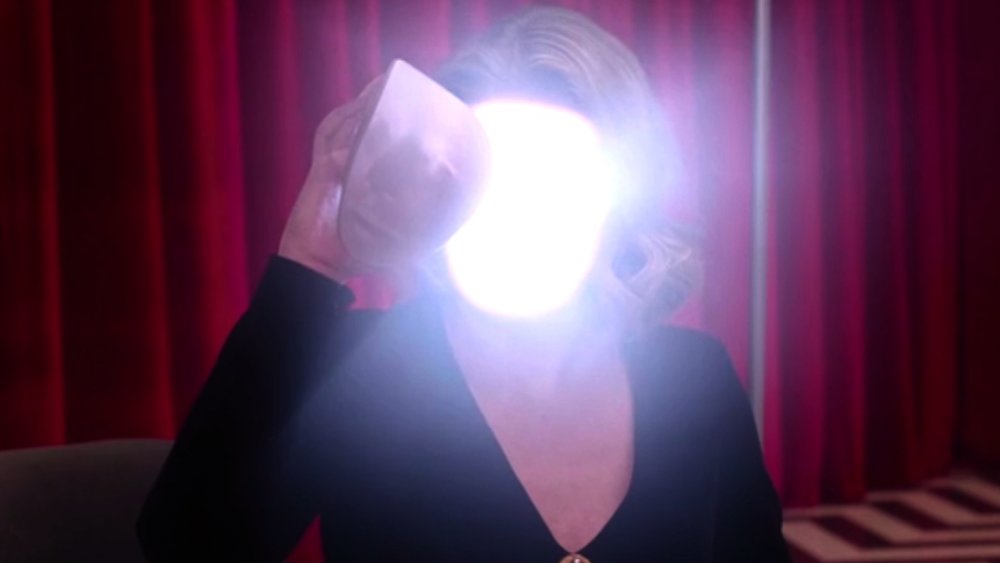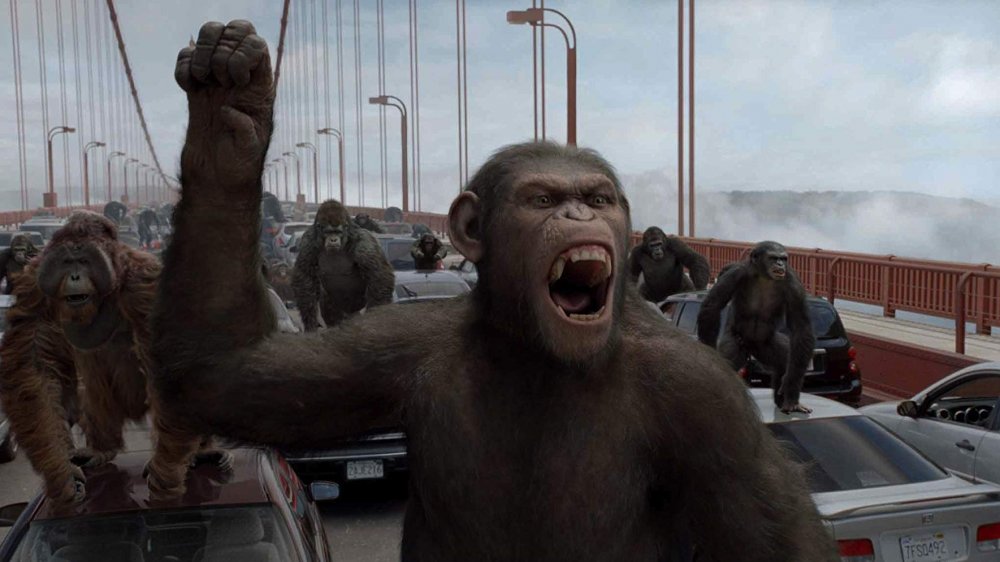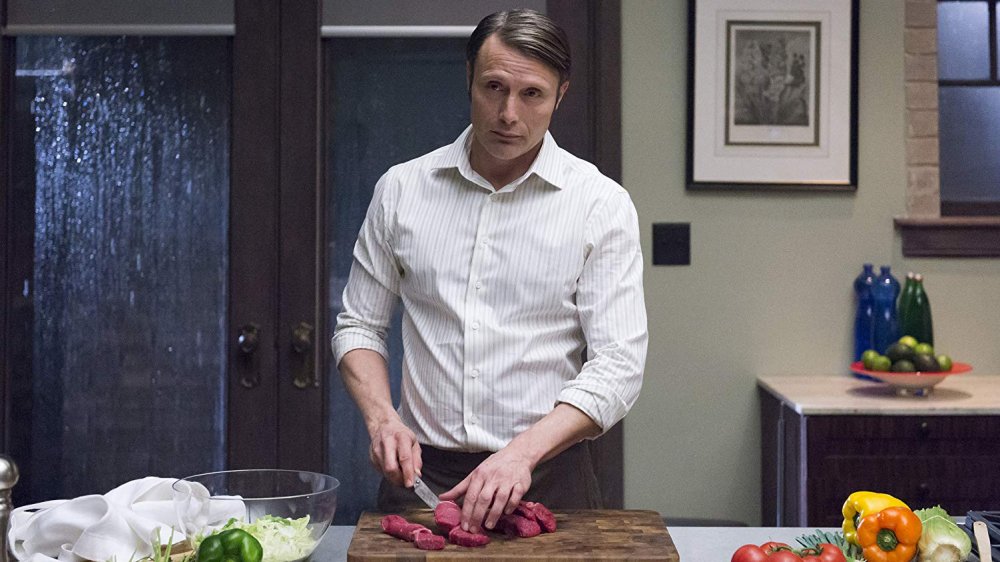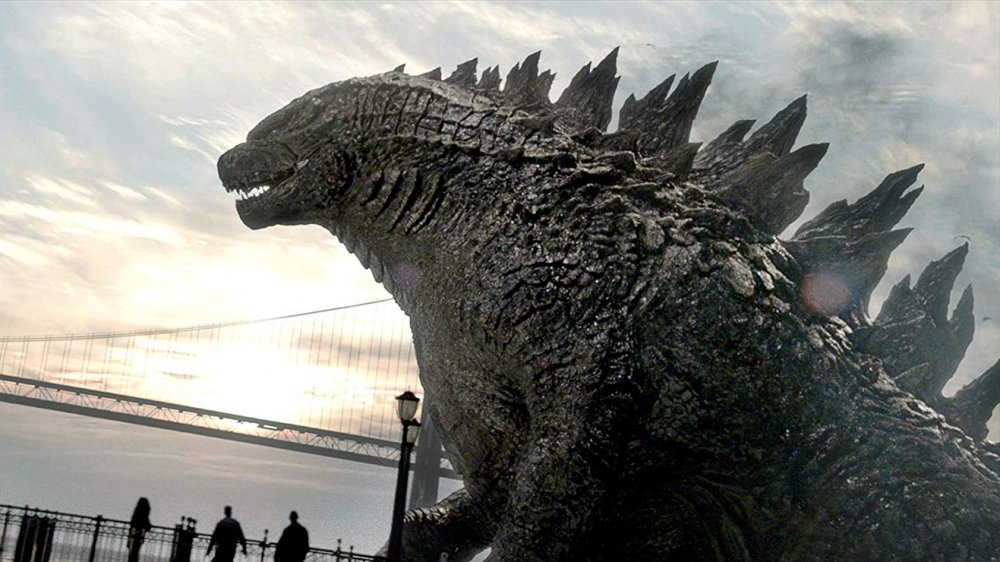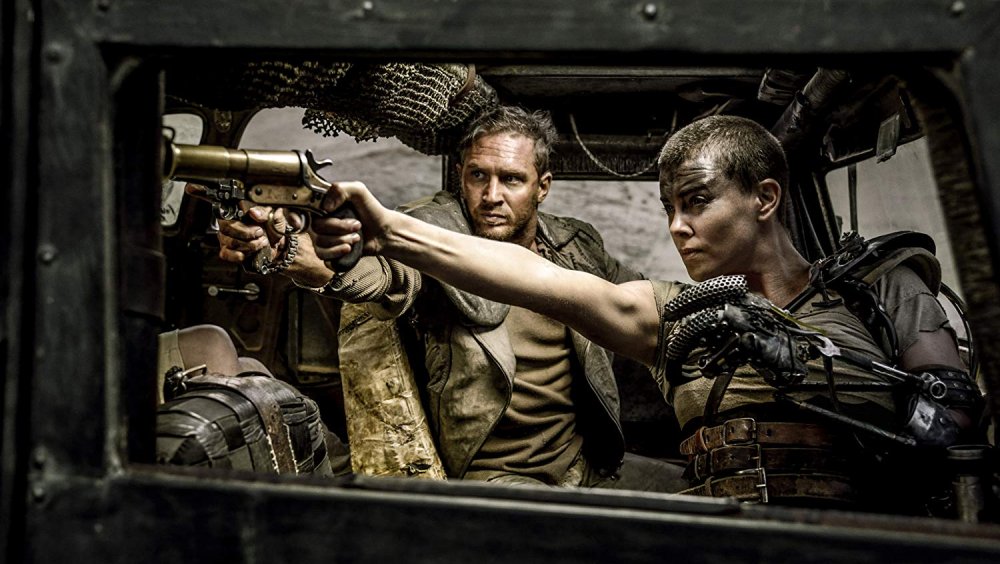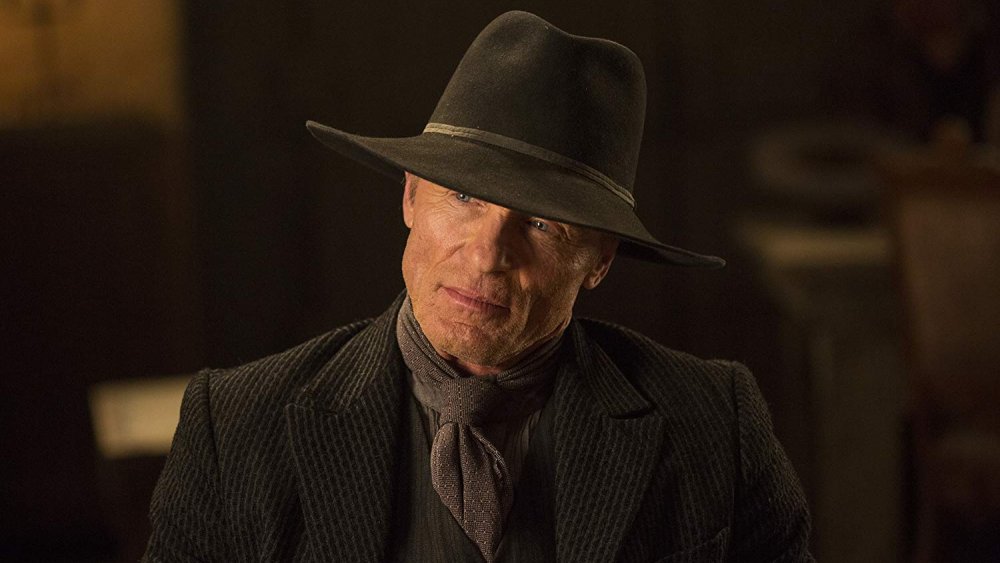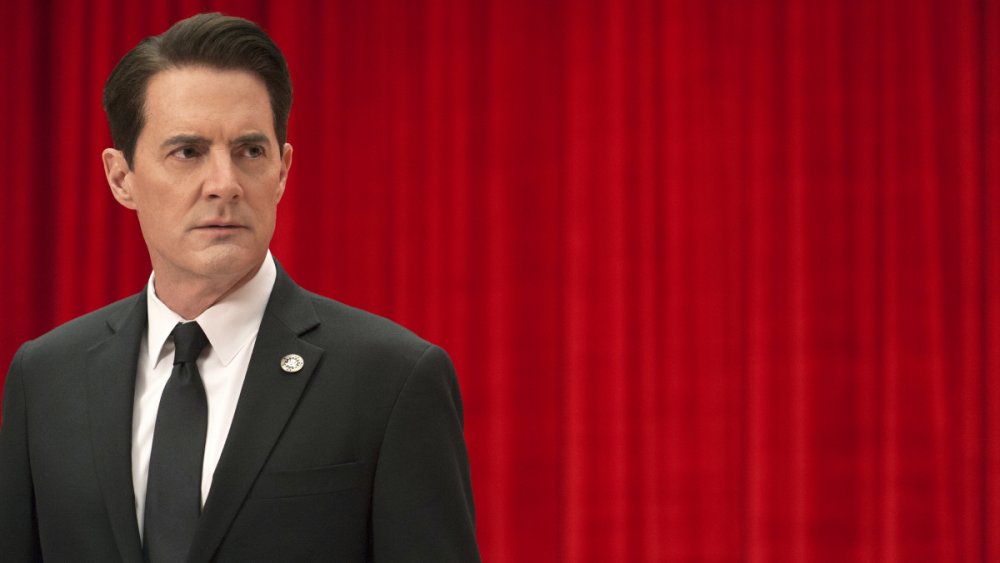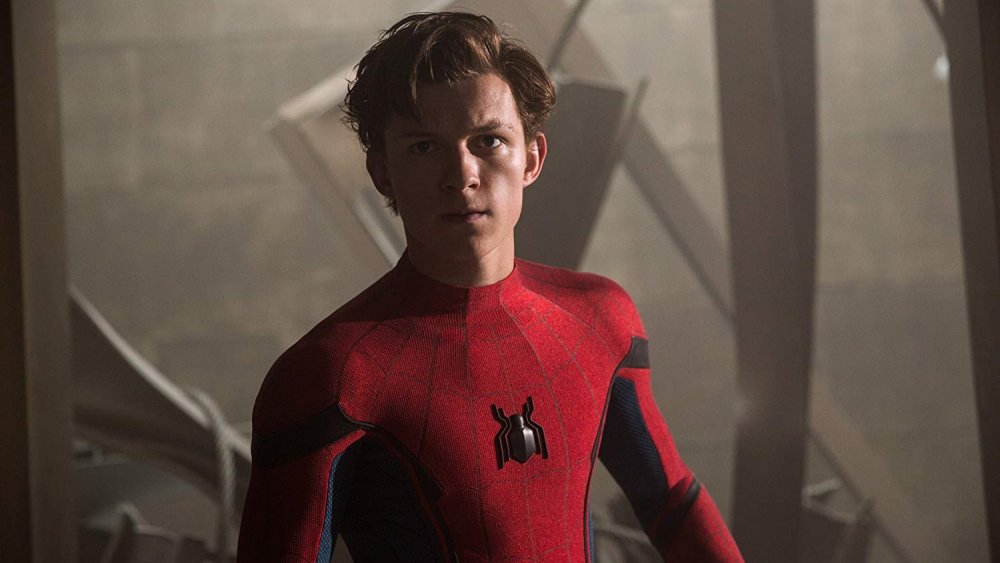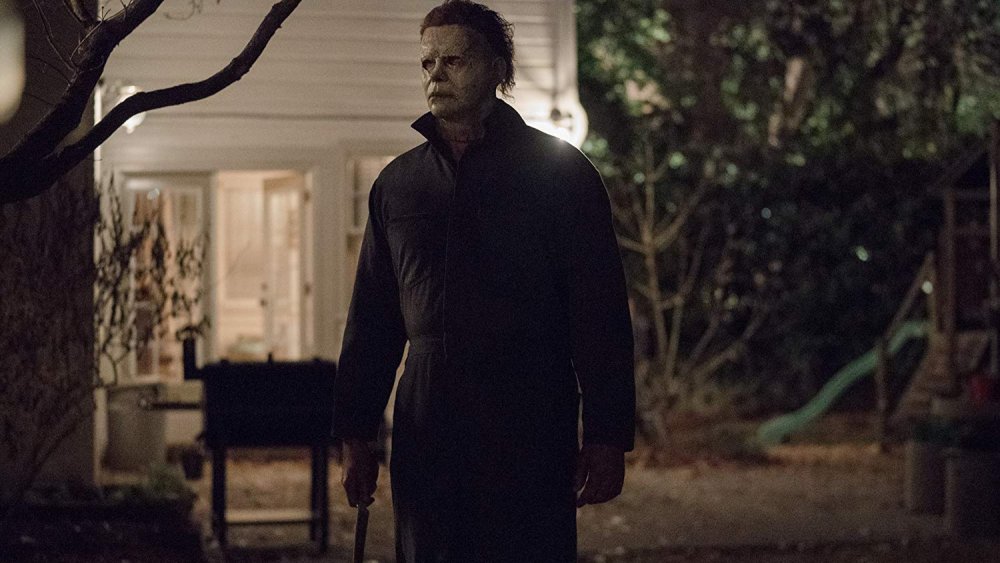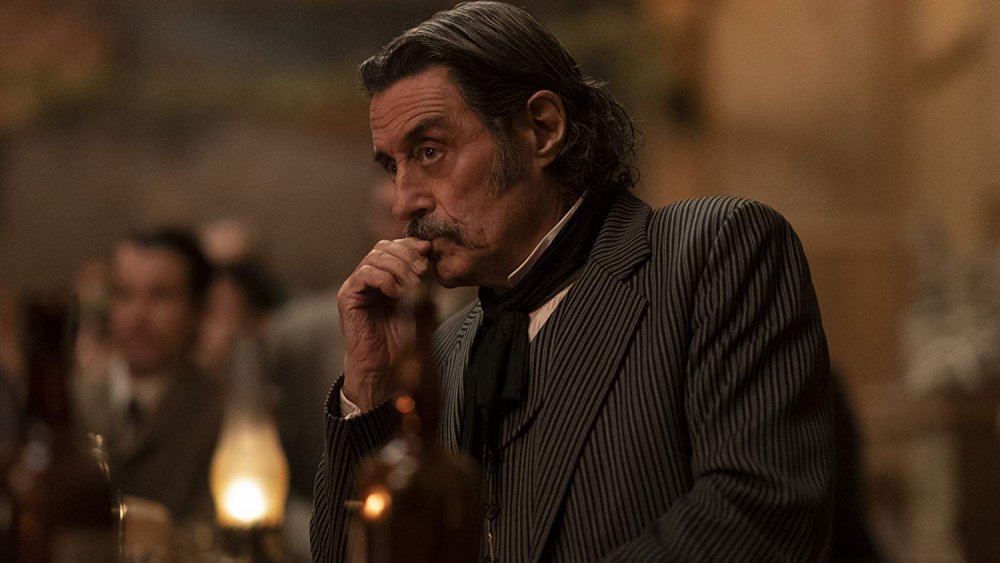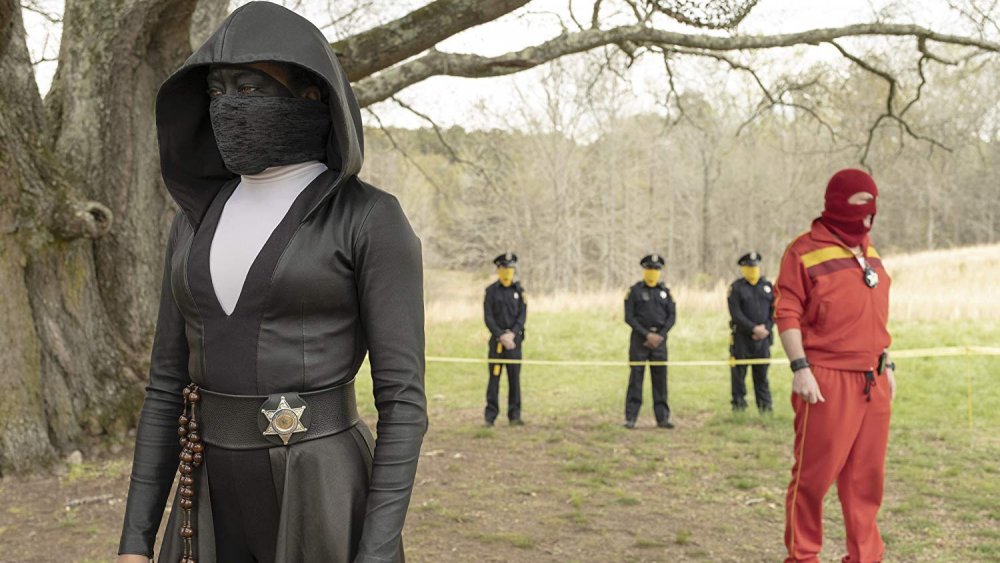The Best Reboots And Revivals Of The Last Decade
We live in an age of franchises, be they big-screen shared universe blockbusters or small-screen continuations of things we fell in love with when we were kids. If it can be a franchise, there's a good chance it will be at some point, and if it already was a franchise, there's a good chance someone's already figuring out how to bring it back.
This climate — in which virtually every reasonably successful piece of intellectual property will be mind at some point — means that we live in an age of revivals and reboots. The 2010s are full of them, from decades-in-the-making trips down memory lane to sequel TV series to stories that jump between mediums to try and get everything to connect. They're everywhere, which of course means that some of them are quite bad. Fortunately, a lot of them are quite good, and some of them are flat-out great.
As the 2010s draw to a close, here are our picks for the best revivals of the decade on the big and small screens, in the order in which they were released.
The Planet of the Apes trilogy
Rise of the Planet of the Apes arrived in 2011, nearly 40 years after the last film in the original Apes series and a decade after Tim Burton's ambitious but ultimately poorly received attempt at a remake. Perhaps Burton's remake made us skittish, but at first glance Rise seemed like a questionable approach to reviving the franchise. The film presented an origin story for the titular planet, far removed from the full-blown ape civilization that fans of the original film adore. How would this relatively intimate story of the ape that started it all possibly work in the context of those grand-scale original films?
Through a combination of truly gorgeous digital work (led by Andy Serkis' performance as Caesar) and a real focus on the emotional arc of the ape characters, the trilogy born out of Rise of the Planet of the Apes managed to grow into some of the most ambitious, compelling, and thrilling science fiction filmmaking of the decade. Each film builds on the last, and by the time War for the Planet of the Apes rolls around, the trilogy has seamlessly shifted from intimate sci-fi thriller to full-blown epic genre showdown, hitting all the right beats in between.
Hannibal
The Hannibal Lecter franchise had already gone off the rails by the time Bryan Fuller came along thanks to the ill-conceived prequel attempt that was Hannibal Rising. The idea of yet another prequel seemed at first glance like little more than an attempt to leverage valuable IP. To make things even more questionable, a TV show about a cannibalistic serial killer and the FBI profiler trying to track him down was set to arrive on broadcast television, where it couldn't possibly ascend to the same gruesome heights as it might on the big screen.
In the hands of any other showrunner, Hannibal might have been stale and unnecessary, but Bryan Fuller is not any other showrunner. In his hands, the NBC series starring Mads Mikkelsen in the title role became a beautiful, monstrous tapestry rich with metaphor, dark humor, and some of the most unforgettable gore effects broadcast TV is ever likely to see. Anchored by phenomenal performances from Mikkelsen and Hugh Dancy as Will Graham, the series was one of the best things on television for its three years on the air, and proved that with the right approach Hannibal Lecter still has plenty of life in him. Here's hoping Fuller gets to revisit the character again one day.
The Legendary MonsterVerse
It's been more than two decades since the Americanized Godzilla arrived in 1998, and that film is still held up as one of the worst examples of a movie remake ever attempted. So it's only natural that when another attempt at bringing the King of Monsters to the United States was announced, fans were skeptical, and they were even more skeptical when it was revealed that this incarnation of Godzilla would be part of a planned shared monster universe from Legendary Pictures.
We're now multiple films into the MonsterVerse, and while not everyone in the world is onboard with this particular approach, the films are working in terms of both their overall shared universe storytelling and the individual ambition inherent in each film. Godzilla, directed by Gareth Edwards, is far and away the safest approach, but by the time Kong: Skull Island rolled around things started to get a little more inventive and interesting. Then Godzilla: King of the Monsters arrived and, middling box office aside, blew the doors off the franchise. Love them or hate them, the MonsterVerse films are going for broke, and that's to be commended at a time when a lot of revivals play it relatively safe.
Mad Max: Fury Road
It took 30 years after Mad Max: Beyond Thunderdome for director George Miller to return to the post-apocalyptic, gasoline-fueled world of one of the most influential post-apocalyptic franchises ever. To say it was worth the wait was an understatement.
Mad Max: Fury Road recasts the title hero as a near-supporting character in a story about a determined warrior named Furiosa (Charlize Theron) who's dreaming of a better life for herself and the women around her, who've been enslaved to the will of a deranged water-hoarding king of the wasteland. The plot is basically just a drive to a specific place and then a drive back, but in between Miller packs the film with two key things: Beautifully orchestrated character work, and breathtaking vehicular stunts and spectacle. The result is a two-hour car chase packed with unforgettable visuals, lines, and wordless moments of heart. Fury Road is not just one of the best franchise revivals of the 2010s. It's one of the best films of the decade full stop.
Westworld
One of the keys to crafting a great revival is picking the right property and then crafted an unexpected approach, and sometimes you can cut through that process in a compelling way by simply picking an unexpected property to begin with. That's the case with Westworld, a series built around a small sci-fi franchise that spanned two features and one brief TV run from 1973 to 1980. The original Westworld film is remembered fondly by its devotees, but it's certainly not a blockbuster franchise, and no one was clamoring for a revival of it.
That lack of attention is exactly what creators Jonathan Nolan and Lisa Joy needed for their HBO series, a deeply cerebral dive into high-concept thriller storytelling and complex science fiction meditations on the nature of existence itself. The show is an ultra-ambitious remix of the key concepts of the original film, with a lot of even bigger ideas thrown in. It feels both entirely fresh and quite familiar, and as the series expands beyond the bounds of its lead-in hook, it just keeps getting more compelling.
Twin Peaks: The Return
Many TV revivals seem expressly designed to give you exactly what you want with as few complications as possible. Bring back the original cast, maybe the original creator, and follow a lot of the same beats and trademarks that defined the show you remember loving so much. There's nothing wrong with giving people what they want, but it's not always the same as giving people what they need. Twin Peaks: The Return gave us what we didn't know we needed.
Twin Peaks fans were ecstatic when it was announced that original creators David Lynch and Mark Frost would return to the iconic cult series for a new season, and even more ecstatic when it was revealed that the series would air on premium cable (which meant no content restrictions) and be directed entirely by Lynch (which meant the show's weirdness would be on full display). Even then, though, there was still a chance that network executives and the allure of nostalgia meant the series would play it safe. Lynch and Frost thankfully made sure that didn't happen. For 18 delirious hours in the spring and summer of 2018, fans were treated to a relentless onslaught of dark dreams, alternate realities, doppelgängers, and old friends presented in new ways. Twin Peaks: The Return is an uncompromising, truly visionary TV experience, and the most stunning TV revival of the decade.
Spider-Man: Homecoming
Marvel Cinematic Universe fans were thrilled when the news broke that an agreement between Sony and Disney meant that Spider-Man would join the live-action megafranchise in 2016's Captain America: Civil War. Tom Holland made his Spidey debut in that film, and added a lot of youthful energy to the superhero slugfest, but questions over his staying power lingered. Holland is, after all, the third live-action Spider-Man to appear on the big screen in less than two decades, and his first solo movie effort would mark the sixth Spider-Man film since 2002. Before Spider-Man: Homecoming arrived, it was honestly worth wondering if the character could sustain yet another solo movie franchise so soon after The Amazing Spider-Man fizzled two films in.
When Homecoming landed in the summer of 2017, those fears were put to rest. Holland and company delivered on all the promise the character showed in Civil War and delivered a heartfelt, hilarious, and inventive take on Spidey that put Peter Parker back in high school and drove home key elements of his character in a way that even previous movies hadn't. Before Homecoming, it wasn't clear if we could take another Spidey franchise. After Homecoming, we couldn't get enough.
Halloween
The Halloween franchise had been around for four decades by 2018, and over the course of those 40 years had produced 10 feature films, only one of which didn't feature signature villain Michael Myers. The nine films that did feature Michael include one two-film remake series, a faked death, a retconned child, a secret identity, and a number of other twists and turns that Halloween fans lovingly chronicled for decades.
Then Halloween 2018 came along and said that all of those many continuity quirks no longer mattered. The film made the bold choice to ignore every film that took place after John Carpenter and Debra Hill's original 1978 classic, even the sequel that took place on the same night. That could have been a death sentence for the film, but instead Halloween 2018 morphed into a meditation on trauma, legend, and cycles of violence that paid tribute to every previous film in the franchise while also praising a bold new path. Throw in Jamie Lee Curtis in a powerhouse return as Laurie Strode, and you've got a horror franchise with plenty of new life.
Deadwood: The Movie
In the years following its 2006 cancellation, Deadwood's reputation as one of the best-written and best-acted shows of TV's second Golden Age only grew. David Milch's series about a frontier mining settlement and the complicated and divergent moral codes of its citizens began to regularly appear on lists of shows that deserved revivals, alongside cult hits like Pushing Daisies and Firefly. For years there were whispers that Milch was working on a return, but they always seemed to fade away. Then at last, in the spring of 2019, for two glorious hours, we got to go back to Deadwood.
Deadwood: The Movie might feel at first glance like something that shouldn't work. It retains the sense of thematic complexity and vastness of the original series, reuniting most of the original cast years after the events of the third and final season. Despite its scope, though, it's determined to tell a digestible story within the confines of a single feature film while also touching on every single returning character, and even highlighting a couple of new ones. Somehow, Milch and company pulled it off. Deadwood: The Movie is a triumphant curtain call more than a decade in the making, and reminds us all why we were so captivated by the series in the first place.
Watchmen
It took more than 20 years for Watchmen, the seminal comic book miniseries by Alan Moore and Dave Gibbons, to make it to the screen at all. After it finally did, via Zack Snyder's 2009 film adaptation, it seemed likely that would be the end of things, because Watchmen had existed largely unchanged since its publication. Then came DC Comics' Before Watchmen series of prequels, and that also seemed to be a relatively self-contained venture. Watchmen has always been, in its own way, a rather monolithic work, and the prospect of continuing its story beyond that original comic has always felt daunting.
Which is why it was such a pleasant surprise to discover that the Watchmen TV series created by Damon Lindelof (Lost, The Leftovers) was not only intriguing, but flat-out brilliant. Conceived as both a sequel to the original comic (not Snyder's film) and a kind of remix of Watchmen's biggest ideas, Lindelof's TV series employs a diverse cast and a lot of very big ideas to tell a new story more than three decades after the original. Old characters are given new life, new characters get to dive into an old mythology, and the result is some of the decade's best comic book-inspired storytelling. It has no right to be this good, but somehow it is.
